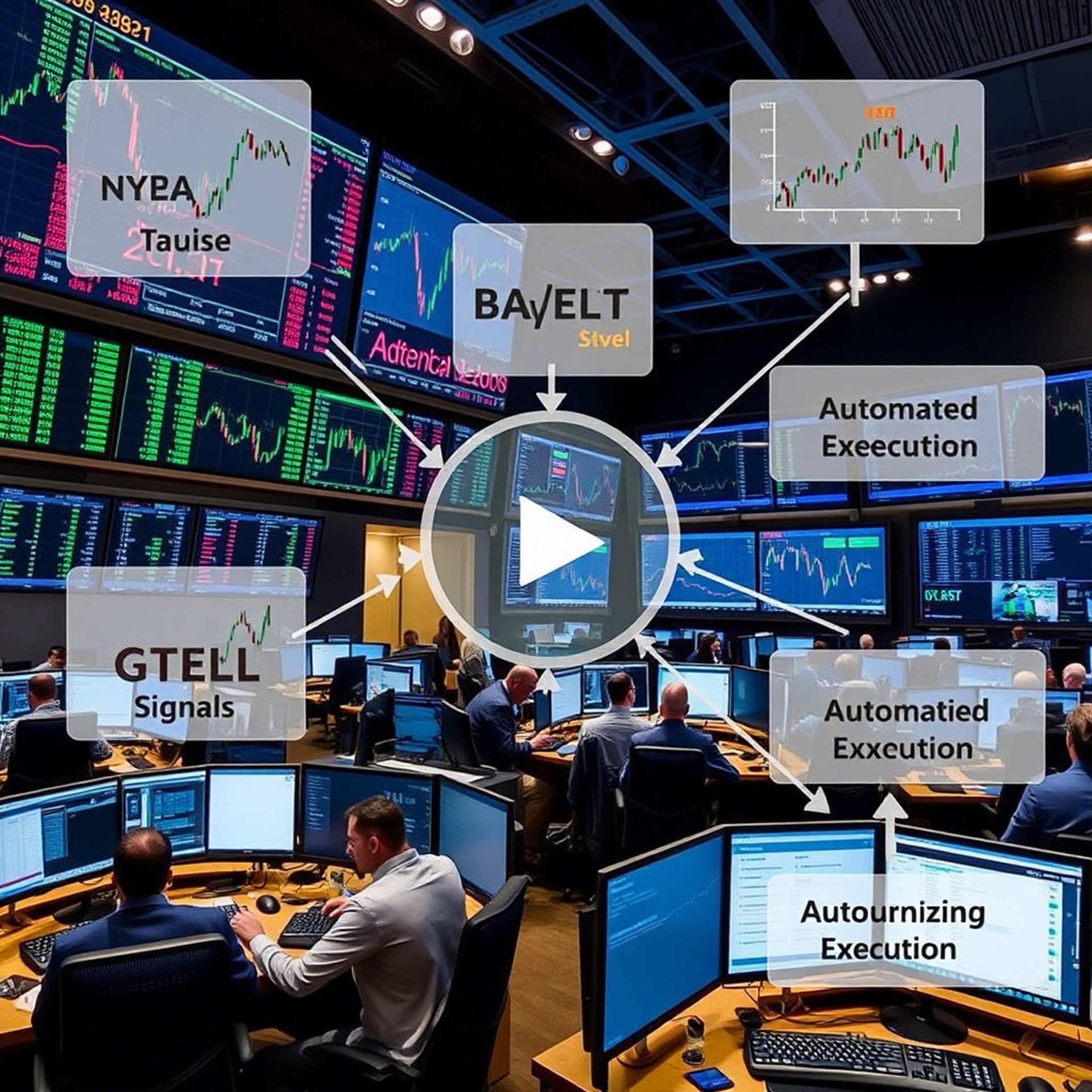
What is Algo Trading?
Algorithmic trading, commonly referred to as "algo trading," is the process of using computer algorithms to automate the buying and selling of financial instruments such as stocks, bonds, commodities, or derivatives. These algorithms are designed to execute trades based on predefined criteria, such as price, volume, timing, or other market conditions. The goal of algo trading is to execute trades more efficiently, quickly, and with minimal human intervention.
How Does Algo Trading Work?
1. Strategy Development: Traders or quantitative analysts develop a trading strategy based on technical indicators, statistical models, or machine learning algorithms.
2. Backtesting: The algorithm is tested on historical data to evaluate its performance and ensure it would have been profitable in the past. 3. Execution: Once the algorithm is validated, it is deployed in live markets to execute trades automatically based on real-time data. 4. Monitoring & Optimization: The algorithm is continuously monitored and optimized to adapt to changing market conditions.
Benefits of Algo Trading
1. Speed and Efficiency
- High-Speed Execution: Algorithms can execute trades in milliseconds or even microseconds, which is far faster than any human trader could achieve. This speed is crucial in high-frequency trading (HFT) environments where even a fraction of a second can make a difference.
- Real-Time Decision Making: Algo trading systems can analyze vast amounts of data in real-time and make decisions instantly, ensuring that opportunities are not missed.
2. Elimination of Emotional Bias
- Disciplined Trading: Human emotions like fear, greed, or overconfidence can lead to irrational trading decisions. Algo trading removes emotional biases by strictly following pre-defined rules, leading to more disciplined and consistent trading.
- Avoidance of Overtrading: Since trades are executed based on logic rather than emotion, algo trading helps avoid impulsive or excessive trading.
3. Backtesting Capabilities
- Historical Data Analysis: Before deploying an algorithm in live markets, traders can backtest it on historical data to see how it would have performed in the past. This allows for fine-tuning and optimization of strategies before risking real capital.
- Risk Management: Backtesting helps identify potential risks and weaknesses in a strategy, allowing traders to adjust parameters to minimize losses.
4. Cost Efficiency
- Reduced Transaction Costs: Algo trading can minimize transaction costs by optimizing trade execution. For example, algorithms can break large orders into smaller ones to avoid moving the market or incurring high slippage costs.
- Lower Operational Costs: Automation reduces the need for human intervention, thereby lowering operational costs associated with manual trading.
5. Scalability
- Handling Multiple Markets and Instruments: Algo trading systems can simultaneously monitor and trade across multiple markets, asset classes, and geographies. This scalability is difficult to achieve with manual trading.
- Parallel Processing: Algorithms can execute multiple strategies at the same time, allowing traders to diversify their portfolios and spread risk.
6. Improved Market Liquidity
- Market Making: Many algo trading strategies, such as market-making, contribute to market liquidity by providing continuous buy and sell orders. This benefits all market participants by reducing bid-ask spreads and improving price discovery.
- Arbitrage Opportunities: Algo trading can exploit arbitrage opportunities between different markets or instruments, further enhancing liquidity.
7. Risk Management
- Automated Stop-Loss and Take-Profit Orders: Algo trading systems can be programmed to automatically execute stop-loss or take-profit orders when certain conditions are met, helping to limit losses and lock in gains.
- Position Sizing: Algorithms can dynamically adjust position sizes based on market conditions, volatility, or portfolio risk levels, ensuring that exposure remains within acceptable limits.
8. Consistency and Accuracy
- Precision in Trade Execution: Algorithms execute trades with precision, ensuring that orders are placed at the exact price and time specified. This reduces the likelihood of errors that can occur with manual trading.
- Consistent Performance: Algo trading ensures that the same strategy is applied consistently across all trades, leading to more predictable outcomes.
9. Access to Complex Strategies
- Statistical Arbitrage: Algo trading enables the implementation of complex strategies like statistical arbitrage, which involves identifying mispriced securities and profiting from their convergence.
- Machine Learning Models: Advanced algo trading systems can incorporate machine learning models to predict market movements and adapt to changing conditions in real-time.
10. 24/7 Trading
- Global Market Coverage: Algo trading systems can operate around the clock, allowing traders to participate in global markets that operate in different time zones. This ensures that opportunities are not missed due to time constraints.
- Continuous Monitoring: Algorithms can monitor markets continuously, even when traders are asleep or unavailable, ensuring that trades are executed at optimal times.
11. Reduced Slippage
- Optimized Order Execution: Algo trading can break large orders into smaller chunks and execute them over time to minimize slippage (the difference between the expected price and the actual execution price). This is particularly useful in illiquid markets where large orders can significantly impact prices.
12. Customization and Flexibility
- Tailored Strategies: Algo trading allows traders to create highly customized strategies tailored to their specific risk tolerance, investment goals, and market outlook.
- Adaptability: Algorithms can be easily modified or updated to adapt to changing market conditions or new trading opportunities.
Conclusion
Algorithmic trading offers numerous advantages over traditional manual trading, including speed, efficiency, cost savings, and the ability to execute complex strategies. By removing emotional biases and enabling precise, real-time decision-making, algo trading has become an essential tool for institutional investors, hedge funds, and individual traders alike. However, it is important to note that algo trading also comes with risks, such as system failures, over-optimization, and reliance on historical data, which must be carefully managed to ensure success.
